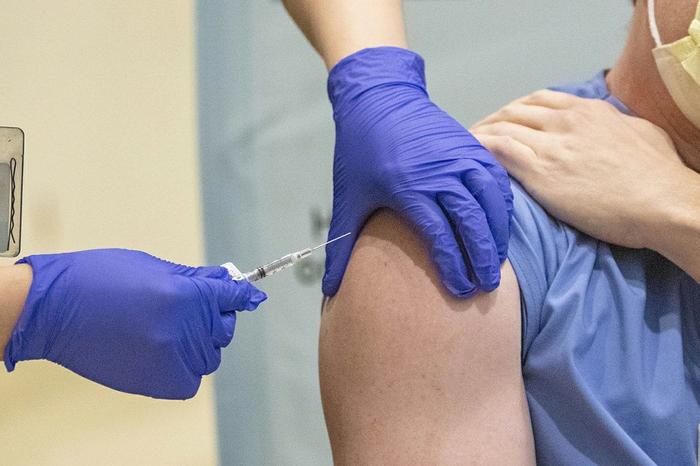Scientists at the University of California, Riverside have created a new vaccine strategy that could protect against any strain of a virus, even in babies and people with weakened immune systems. This new approach, described in a paper published in the Proceedings of the National Academy of Sciences, could eliminate the need for yearly flu shots and updated COVID vaccines.
Traditional vaccines contain either dead or modified, live versions of a virus. The body’s immune system recognizes a protein in the virus and creates an immune response, producing T-cells that attack the virus and “memory” B-cells that protect against future attacks. However, this new vaccine strategy uses small, silencing RNA molecules instead of relying on the body’s traditional immune response.
How the New Vaccine Works
The new vaccine uses a live, modified version of a virus that has been weakened by removing its ability to suppress the body’s natural RNAi response. RNAi, or small interfering RNA molecules, are produced by the body as an immune response to viral infection. By creating a mutant virus that cannot block the RNAi response, the virus is weakened and can be used as a vaccine to boost the body’s RNAi immune system.
“A host — a person, a mouse, anyone infected— will produce small interfering RNAs as an immune response to viral infection. These RNAi then knock down the virus,” said Shouwei Ding, distinguished professor of microbiology at UCR, and lead paper author.
Promising Results and Future Applications
When tested on mice lacking T and B cells, a single injection of the vaccine protected them from a lethal dose of the unmodified virus for at least 90 days. The vaccine also protected newborn mice, as they produce small RNAi molecules from birth. This is significant because there are few vaccines suitable for use in babies younger than six months old.
The researchers plan to apply this concept to create a flu vaccine that can protect infants without relying on their mothers’ antibodies. They believe this strategy can be adapted to create a one-and-done vaccine for many well-known human pathogens, such as dengue, SARS, and COVID.
“What I want to emphasize about this vaccine strategy is that it is broad,” said UCR virologist and paper author Rong Hai. “It is broadly applicable to any number of viruses, broadly effective against any variant of a virus, and safe for a broad spectrum of people. This could be the universal vaccine that we have been looking for.”

